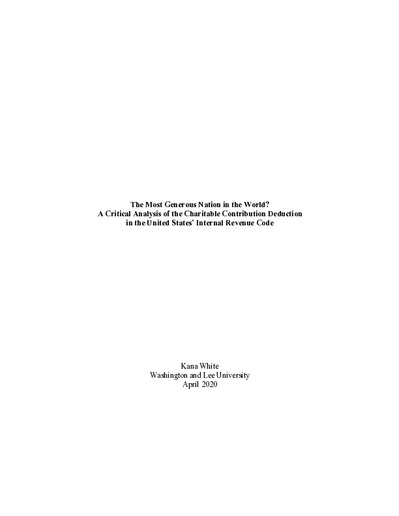The Most Generous Nation in the World? A Critical Analysis of the Charitable Contribution Deduction in the United States' Internal Revenue Code

View/
Author
White, Kana Krista
Subject
Washington and Lee University, Shepherd Poverty Program
Cultural pluralism -- Moral and ethical aspects
Income tax deductions for charitable contributions
Social service
Charitable uses, trusts, and foundations -- Taxation
Metadata
Show full item recordDescription
Capstone; [FULL-TEXT FREELY AVAILABLE ONLINE] Kana Krista White is a member of the Class of 2020 of Washington and Lee University. Despite its cost, people often support the charitable contribution deduction by pointing to the oft-quoted statement, "America is the most generous nation on Earth," and justify philanthropy on the belief that it is redistributive, resulting "in the lessening of inequality between rich and poor, either through direct transfers from the rich to the poor or through efforts to improve structural conditions so that the poor will no longer need to rely on charity for basic sustenance." While Americans do give the most, many do not realize that what counts as giving to charity can include donations to religious organizations, elite private schools, and art museums. If our goal for charity is to promote equality with the maximum possible redistribution to those whose needs might otherwise go unmet, then the charitable contribution deduction fails to achieve this goal. [From Introduction] Kana White